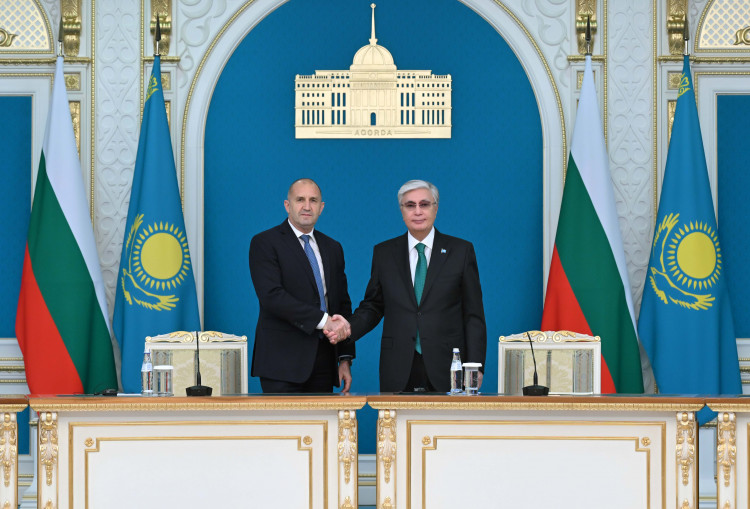On June 9 in Astana, President Kassym-Jomart Tokayev held talks with President of Bulgaria Rumen Radev, who arrived in Kazakhstan on an official visit.
As emphasized by the Kazakh President, Radev’s visit with a high-level delegation opens new prospects for strengthening bilateral cooperation. Tokayev noted the steady growth in trade turnover and the potential for its further expansion. According to statistics, mutual trade exceeded $83 million in the first four months of this year, while in 2024, this figure quadrupled, reaching $375 million.
Kazakhstan is eager to further diversify bilateral economic cooperation and promote joint investment projects in energy, green transition, agriculture, healthcare, and tourism, said Tokayev.
The President of Bulgaria said that his country regards Kazakhstan as a key strategic partner in Central Asia. “I firmly believe that connectivity is the key to success. In terms of our bilateral relations and the relationship between the European Union and Kazakhstan, based on the strategy for their further development, we must fully leverage the strategic locations of our two countries, which serve as vital links for connectivity between Asia and Europe,” said Rumen Radev.
At the conclusion of the talks, Tokayev and Radev participated in a ceremony for the exchange of signed bilateral documents, including a Memorandum of Understanding between the Ministry of Transport of Kazakhstan and the Ministry of Transport and Communications of Bulgaria on the development of the Trans-Caspian International Transport Route.
On the same day, both presidents attended the Kazakhstan-Bulgaria Business Forum.
In his speech, Tokayev emphasized the importance of transport connectivity. “Kazakhstan and Bulgaria both hold unique geographic positions. Kazakhstan, located at the heart of Eurasia, serves as a vital link in facilitating continental connectivity – handling 85% of all overland cargo traffic between Europe and China. Thanks to expanding infrastructure of the Middle Corridor – including modern railways, dry ports and logistic hubs – we are connecting East and West more efficiently than ever before. Last year, freight transportation along this route surged by 62%, reaching 4.5 million tons. The capacity is expected to increase to 10 million tons by 2028. We are committed to expanding cargo transportation along this route and welcome BMF Port Burgas for joining the Middle Corridor, connecting it with a key logistics hub on the Black Sea,” said Tokayev.
Photo: akorda.kz
